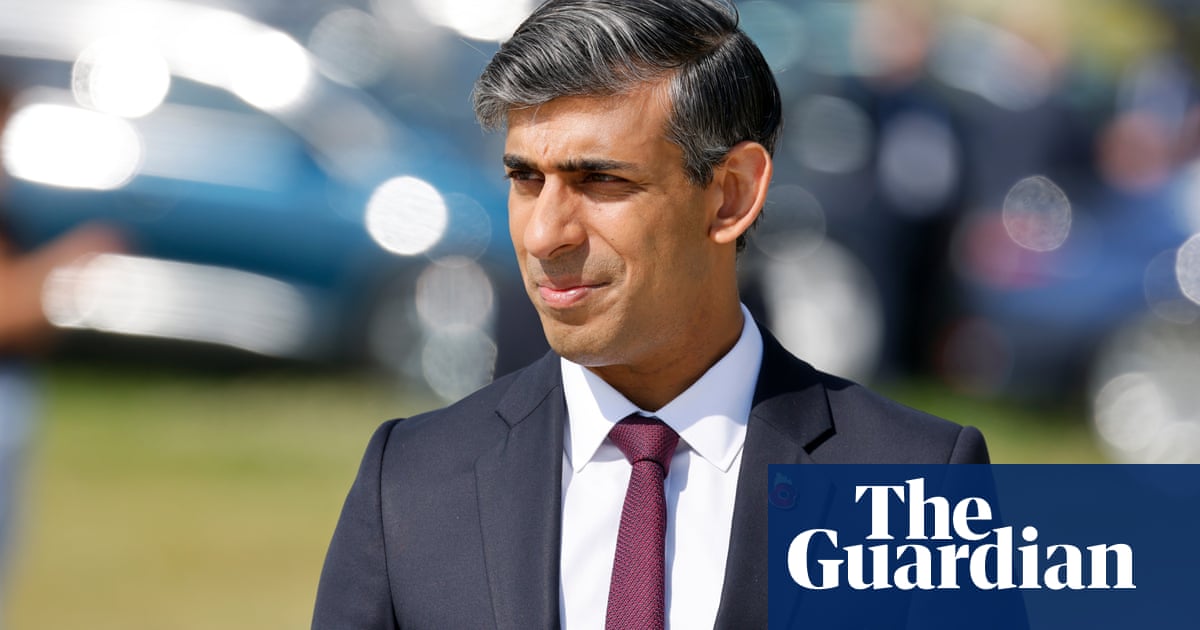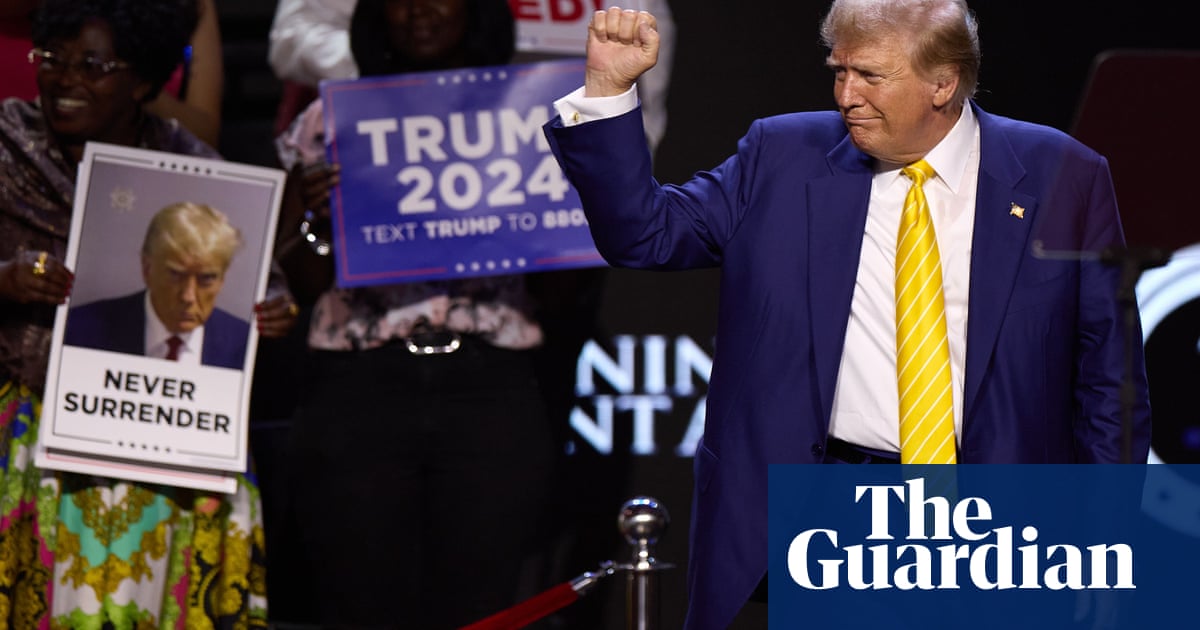A few hundred metres from her house, Rosemary Lewis stands at a clearing on a footpath overlooking a tract of rolling hills in the Oxfordshire countryside that could become home to UKâs largest solar farm. With plans to install 2.5m solar panels along an 11-mile (18km) stretch north of Oxford, the Botley West solar farm would be vast.
The proposal is one of 30 large-scale solar projects vying for approval, which could give the UK a much-needed shot in the arm to achieve its climate goals of generating 100% clean electricity by 2035 and reaching net zero greenhouse gas emissions by 2050.
But Lewis sees it differently. âItâs a nightmare,â she says of the proposal that would spread across 1,400 hectares (3,500 acres) of mostly green belt land. Her husband, Tom, says: âItâs just too big. We will be living on an industrial site.â
Large-scale solar farms have become the latest net zero technology to be bogged down by local disputes and polarising debates across the country. A growing coalition of grassroots groups argue that the ballooning pipeline of solar developments would âarmour-plateâ the countryside, destroy good farmland and threaten food security. Instead, they want to see solar âin the right placesâ, on rooftops and brownfield sites.
Conservative MPs, representing the rural constituencies where these solar proposals are concentrated, have given their support to calls for stricter rules to regulate solar on farmland.
However, while most experts agree that a lack of land use and energy planning has led to a suboptimal and opportunistic approach to solar deployment, large-scale solar is one of the key building blocks of the UKâs climate plan. âSolar on farmland is an important part of energy decarbonisation,â said Tom Lancaster, of the Energy and Climate Intelligence Unit (ECIU).
To decarbonise the electricity system, the Conservative government said it would increase solar capacity nearly fivefold to 70GW by 2035 and called for âlarge-scale ground-mounted solar deployment across the UKâ â one of the cheapest forms of electricity generation. To balance energy security and food production, it told developers to prioritise poorer-quality land and avoid using the best farmland for large projects âwhere possibleâ.
The Botley West proposal goes to the heart of the issue. The solar farm would cost £950m to build on land predominantly leased by the Blenheim estate, 38% of which is considered âbest and most versatileâ agricultural land. Campaigners have been lobbying the government to change the rules and restrict large-scale solar on farmland even of moderate quality.
This âwould basically do to solar what has been done to onshore wind in Englandâ, said Lancaster, referring to the introduction of planning rules that brought the nascent onshore wind industry to a juddering halt.
He said rolling out solar power in line with the net zero goal would take up less than 1% of the UKâs agricultural land, which would have ârelatively insignificantâ impacts on food security compared with other non-food uses, such as bioenergy crops.
What was lacking was âa helicopter view from the centre of government over what we use land forâ that could minimise conflicts and trade-offs, he added. The government has repeatedly delayed the publication of a land use framework for the UK.
Nick Eyre, a professor of energy and climate policy at Oxford University, said solar on rooftop and brownfield sites must be deployed at greater speed but it would not be sufficient for the UK to secure the solar power it needed to meet decarbonisation goals.
By 2050, Oxfordshire alone would need the equivalent of four or five Botley Wests in solar capacity under a progressive scenario, he said. âWe should have had a plan for where solar was going to get built in the county and work from there. But if we want to build solar quickly then this is probably the sort of project that needs to go ahead.â
The German developer Photovolt Development Partners (PVDP) says the 840MW Botley West proposal could power 330,000 homes and has been designed to reduce the visual impact on the landscape, increase biodiversity and allow sheep to graze the land.
after newsletter promotion
Solar farms this big are designated as nationally significant infrastructure projects and are examined by the Planning Inspectorate, with the secretary of state making the final decision, which will fall to the next government. PVDP expects to submit a planning application in September and hopes to start generating power in 2027.
Alex Rogers, a professor at the University of Oxford who specialises in marine ecology, and who chairs the Stop Botley West campaign, rejects accusations that the group is made up of an old guard of anti-solar nimbys. âI see the impacts of climate change everywhere we go in the ocean. There is absolutely no doubt that we are in a climate emergency,â he said. The problem, he said, was a vacuum in national policies, which had led to a âsolar gold rushâ.
However, some of the campaignâs arguments are seemingly based on more spurious claims. In what it describes as âuncomfortable truthsâ, Stop Botley West says solar farms are âinefficientâ and the scheme âmay never pay back its carbon debtâ. A local election leaflet from a Conservative candidate and member of the campaign falsely claimed that the projectâs carbon footprint âwill be greater than the benefitsâ.
Eyre described the claim that solar farms are inefficient as âmisleadingâ and the idea that it would not repay the carbon debt as âsimply wrongâ.
The International Energy Agency says solar panels need to operate for only four to eight months to offset their manufacturing emissions, and studies have shown that emissions savings from avoiding fossil fuels trump the technologyâs carbon footprint. While wind power is more efficient than solar, a recent Royal Society report found solar power was a necessary part of the mix.
Claims solar farms are inefficient and ânot environmentally friendlyâ are also being promoted by the UK Solar Alliance, a coalition of 124 groups opposing about 9GW worth of large-scale solar plans, as part of a toolkit of resources for local campaigns. The document was compiled by the allianceâs former chair Michael Alder, who recently joined the academic advisory council of the Global Warming Policy Foundation (GWPF), the UKâs most prominent climate sceptic thinktank, which has repeatedly attacked renewable energy and net zero policies.
The Stop Botley West campaign and the UK Solar Alliance say they strongly reject climate denial views. Alder told the Guardian he was ânot a climate change denierâ but had accepted a GWPF invitation to âgive independent views on academic papersâ.
For Hilary Brown, the chair of Sustainable Woodstock, the Stop Botley West campaign has distracted from needed discussions about how to improve the proposal so it benefits local people and nature if approved.
Despite the vocal opposition, ECIU polling found that in the south-east of England 70% of respondents would support a solar farm being built in their local area. Lilah McKim, 22, a local climate activist, said the project gave her hope at a time when the world urgently needed climate action.









